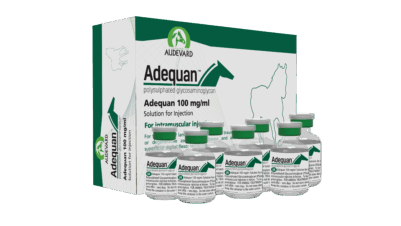International veterinary charity, Worldwide Veterinary Service (WVS), has opened a new cutting-edge veterinary training centre in Chiang Mai, Thailand, that will provide expert training to vets and vet students in Thailand and internationally, and give more animals access to the very highest standard of veterinary care.
The specialist veterinary training centre has opened following increased demand across South East Asia and internationally. The new centre will bring innovative modern design and the latest in practical veterinary techniques to the north of Thailand.
CEO and founder of WVS, Dr Luke Gamble, explains the impact this will have on veterinary training globally:
“Training vets is at the heart of what WVS does. Since 2015, we have been providing high-quality veterinary training in Thailand, and the demand continues to grow. In 2024 alone, across our seven International Training Centres (ITCs), WVS trained 2,863 vets, enhancing their skills and knowledge to improve animal welfare worldwide.

“Our commitment to veterinary training goes beyond numbers – it’s about making lasting improvements. By offering expert training to local veterinary professionals, students, and international participants, WVS is empowering the global veterinary community and raising standards of care everywhere.
“The increased capacity for training in Thailand is a testament to our dedication to building a stronger, more skilled veterinary workforce that can address animal welfare challenges across the globe.”
The new centre is predicted to increase the number of vets trained by 25 percent and the animals treated by 30 percent. The centre will also provide a space to host animal welfare conferences to engage with other organisations to improve veterinary care and animal welfare across South East Asia.
The new project has faced its share of challenges since building work began in November 2023, with heavy rains hindering progress at times. Huge effort went into ensuring the project completed on schedule while the charity continued working to improve veterinary care and save animals alongside it.
Dr Guy Paparwinsub, WVS Thailand director explains:
“Building the new centre has been a five year project. The actual build took 16 months, but throughout that time, our incredible team never paused their life-saving work. Despite the construction efforts, our training courses, treatments, and outreach clinics continued without interruption. Our Thai team treated over 8,000 animals who would otherwise have had no access to veterinary care in 2024.
“We remain steadfast in our commitment to treat, train, and educate throughout the greater Chiang Mai area. Now, with enhanced resources and state-of-the-art equipment, we are better equipped than ever to expand our impact regionally and internationally – creating a brighter future for animals and the communities that care for them.”

The new centre opened on March 18, with an opening ceremony attended by representatives of WOAH, WHO, Dogs Trust, Marchig Animal Welfare Trust, as well as representatives from 11 international veterinary universities. The event included tours of the centre followed by a two-day workshop on rabies tools, global veterinary training and research into humane dog population control.
Owen Sharp, CEO of Dogs Trust and WVS chair of trustees, attended the opening and spoke about the global impact that the centre will have on raising standards of animal welfare through improved veterinary training.
“The new training centre is more than a facility – it’s a gateway to better animal care worldwide. By providing veterinarians with the highest standards of training, we are ensuring that animals everywhere receive the compassionate, expert treatment they deserve when they need it most.
“This ITC expands access to world-class training, not only for veterinarians across Thailand but for professionals from around the globe. As more vets receive cutting-edge education and hands-on experience, countless animals will benefit from enhanced care, creating a lasting impact on animal welfare worldwide.”
The centre includes a cattery, quarantine, rescue clinic, surgery and multiple kennel blocks, as well as a lecture theatre, education centre and various specialist rooms.






